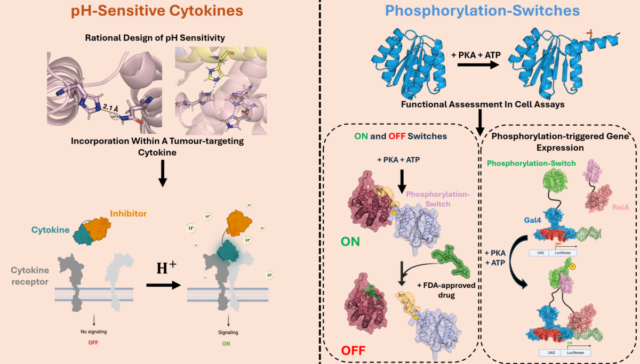Master student Mubarak Idris has been awarded the Prize for the Best Master’s Thesis 2025 in Chemical Biology for his research project which focused on designing dynamic, stimulus-responsive proteins using AI. His work was conducted in the laboratory of Prof. Bruno Correia at EPFL, Lausanne.
The prize was awarded by the Swiss Network for Interdisciplinary Education in Chemical Biology (SNE Chemical Biology) at the University of Geneva on 23 January 2025. This recognition followed the oral defense of research projects by the Master’s students at the conclusion of their Master in Chemical Biology program, a course jointly organized by the University of Geneva and EPFL under the coordination of SNE Chemical Biology.
ubarak Idris’s research project, titled “Computational Design of Functional Protein Switches with Therapeutic Potential,” centered on designing dynamic, stimulus-responsive proteins using AI.
He developed computational and experimental tools to engineer pH-sensitive therapies targeting the acidic tumor microenvironment. Moreover, he identified de novo proteins capable of undergoing structural changes upon phosphorylation. These “phosphorylation switches” were used to reconstitute simple signaling pathways that could be toggled “ON” or “OFF,” demonstrating the potential to design synthetic signaling networks responsive to multiple inputs. His groundbreaking work paves the way for developing adaptive protein systems for targeted therapeutics.
Congratulations Mubarak !
 Copyright © Mubarak Idris
Copyright © Mubarak Idris
Biosketch
Coming from an English-speaking international school, Mubarak Idris adapted quickly to a new academic and social environment during his Bachelor’s in Biochemistry at the University of Geneva. As he neared the end of his Bachelor’s degree, he found himself drawn not only to Biochemistry but other disciplines such as Physical and Organic Chemistry. In a rather fortuitous manner, after short conversations with professors and peers, he came across the Master’s programme in Chemical Biology where he could benefit from an interdisciplinary and highly practical education. The programme provided an opportunity to meet many scientists and research groups across Switzerland, shaping the future of his scientific career.

Share this article